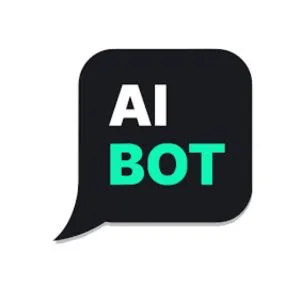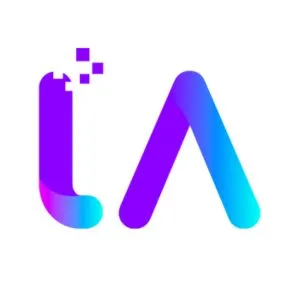Are you wondering what are the Chatbot AI software advantage for your business in 2025? With the rapid evolution of artificial intelligence, chatbots have become indispensable tools for optimizing the customer experience. In this article, we'll take a look at how these solutions can transform your business.
1. Improving the availability of customer service
In 2025, customer expectations for responsiveness are higher than ever. Chatbots powered byartificial intelligence allow customer service to be available 24 hours a day, 7 days a week, without interruption. This means your customers can get their questions answered at any time, whether it's at 3 am or during weekends and holidays. This permanent availability results in a significant increase in customer satisfaction. In fact, a study conducted at the beginning of the year revealed that businesses using AI chatbots saw their customer satisfaction rate increase by 85%. In addition, a constant presence in all time zones is essential for companies that operate internationally, making it possible to meet the needs of customers around the world.
2. Reduced wait times for customers
In a world where everything is going faster and faster, customers no longer have the patience to wait. Les AI chatbots can handle thousands of requests simultaneously, eliminating virtual queues. This allows customers to get instant responses, improving their overall experience. According to an analysis, the average waiting time to talk to a human agent is 2 minutes, while an AI chatbot responds in less than 1 second. This efficiency not only leads to increased satisfaction, but also to a reduction in the abandonment rate by 65%, as customers are less likely to leave the site out of frustration.
3. Customizing the customer experience
The days of impersonal interactions are over. Customers are now looking for tailored experiences. AI chatbots use machine learning techniques to analyze user behaviors and preferences. For example, by recognizing the customer's name, previous purchases, and preferences, the chatbot can offer a personalized interaction. This personalization can increase conversion rates by 40%. In addition, customers feel valued, which reinforces their loyalty to the brand. Studies show that 75% of consumers are more likely to buy from a company that recognizes them by name and knows their purchase history.
4. Data collection and analysis for a better understanding of customer needs
Interactions between customers and chatbots generate a wealth of valuable information. In 2025, businesses are using this data to identify emerging trends, recurring issues, and market opportunities. For example, if an increasing number of customers ask questions about a specific feature, this may indicate an interest in a new product or service. Using the tools ofdata analysis, businesses can adapt their offerings accordingly. This data-driven approach can lead to a 20% increase in sales and a 30% improvement in customer satisfaction.
5. Automating repetitive tasks for customer service agents
Customer service agents often spend much of their time answering the same questions. By automating these tasks with AI chatbots, agents can focus on more complex, high-value problems. This leads to a more efficient use of human resources. One company reported that after implementing an AI chatbot, its agents were able to devote 60% of their time to strategic rather than operational tasks. In addition, it reduces the rate of burn-out among employees, improving staff retention by 15%.
6. Easy integration with existing communication platforms
Modern AI chatbot software is designed to integrate seamlessly with existing systems. Whether on your website, mobile application, or messaging platforms such as Facebook Messenger and WhatsApp, chatbots can be deployed quickly. This omnichannel approach ensures a seamless experience for customers, regardless of the channel they choose. Additionally, integration with CRMs and other internal systems allows for real-time data synchronization, improving the consistency of information provided to customers.
7. Reduced business costs and improved customer service efficiency
Implementing an AI chatbot is an initial investment, but the long-term savings are substantial. By reducing the need for a large customer support team, businesses can save up to 30% on payroll costs. In addition, with a chatbot that can manage up to 80% of current requests, human resources can be reassigned to income-generating activities. This reduction in operational costs, combined with a operational efficiency increased, contributes to improving the overall profitability of the company.
8. Improving customer engagement
AI chatbots don't just answer questions; they can also actively engage customers by offering promotions, news, or collecting feedback. For example, a chatbot can offer a special discount to a customer who is hesitant to complete their purchase, increasing sales by 15%. Additionally, chatbots can conduct instant surveys to gather feedback, allowing businesses to continuously improve their products and services.
9. Increased precision in the answers provided
Thanks to machine learning, AI chatbots are continuously improving the quality of their responses. They can understand the context and nuances of language, including idioms and industry specific jargon. This precision reduces customer misunderstandings and frustrations. A survey showed that AI chatbots achieve 95% response accuracy, often surpassing human agents in terms of consistency and speed.
10. Scalability and adaptation to business needs
Rapidly growing businesses need solutions that evolve with them. AI chatbots offer a scalability unprecedented. Whether you go from 1,000 to 100,000 interactions per month, the chatbot can handle that volume without requiring major structural changes. This is especially beneficial during periods of high demand, such as sales or the holiday season, where customer interactions can increase by 120%. The adaptability of AI chatbots allows businesses to respond effectively to these peaks without compromising the quality of service.
The future of AI-powered chatbots
The future of AI chatbots is promising. With advances inartificial intelligence and natural language processing, chatbots will become even more intuitive and able to handle complex tasks. The integration of technologies such as speech recognition and emotional analysis will allow for even more natural interactions. Forecasts indicate that by 2025, the market for AI chatbots will reach $9.4 billion, a testament to the growing confidence of businesses in these technologies. By adopting AI chatbot software now, your business can remain competitive and meet future customer expectations.
In short, the Chatbot AI software advantage in 2025 are numerous and significant. From improving the availability of customer service to reducing operational costs, through to better understanding customer needs, AI chatbots are an essential asset for any business that wants to develop in an increasingly connected world. It's time to embrace this technology and take your business to new heights.

































































